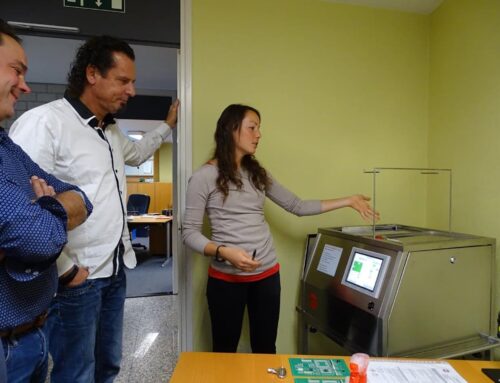Brain implants have been reality rather than science fiction for a long time and there are still many interesting developments in this field. These will have to be approached with a great sense of responsibility, because we will have to prevent a society from arising in which they are turned into a pure money maker allowing the very rich to upgrade their brains, become smarter and even be able to operate machines and devices with brain signals. In this article we will looking into a number of interesting brain implant developments worldwide as well as applications in health care.
Protheses operated by your brain
Currently brain computer interfaces (BCI) are already used to exchange signals with external devices. In this way people can operate one or more prosthetic limbs that replace their own amputated limbs. The human brain is capable of sending signals that are received by sensors in the prothesis which can translate them into actions desired by the brain. This technology will really take off in the next few years, also allowing people to actually feel things with a robot hand.
Further research that is taking place, e.g. by Neurolink, is to use BCI to treat memory loss. This is very important and interesting for people suffering from Parkinson´s disease and from dementia. Apart from this, BCIs could also be used to stimulate the cognitive powers as well as the physical powers of people to make them ´better´ or ´enhanced´ people. Especially the armed forces take a keen interest in this. Various people and organisations have voiced fears and concerns, saying that the latter development has to be monitored very closely from an ethical angle in order to prevent us from creating a world that we do not want.
Thought power
Making objects move with the power of your mind sounds like a scene from a magician’s show, except for the fact that this is no longer magic. Technology has made this possible. The NextMind brain-sensing wearable already enables you to operate digital technology with your mind only. It is a wearable that you place at the back of your head and that lets you operate digital devices real-time with your thoughts.
Being completely paralysed and still writing
Brain implants can enable fully paralysed people to still communicate with the people around them. The implantation of two small BCIs in a patient’s head enables him to computer-translate the letters he has in his head to letters making up a written text. This technology is still very much in an experimental phase, but researchers of Stanford University have great expectations of their research into assisted communication.
These are just a few of the applications that implants in your brain can lead to. There are many more that can also improve people’s lives after they have been struck by disease or have lost a limb.










